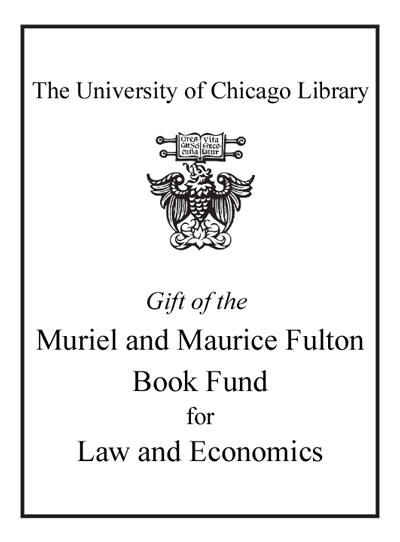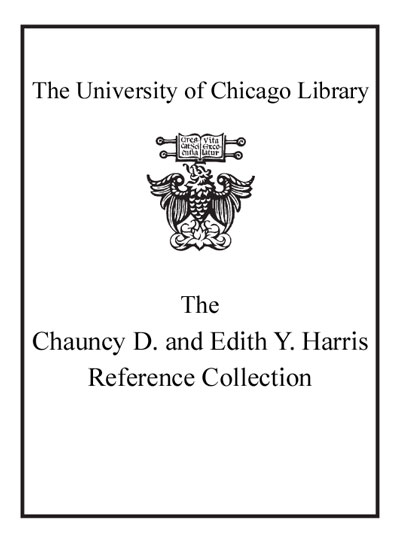Review by Choice Review
In this fascinating best-seller, the authors apply an economic way of thinking to tackle issues traditionally classified outside economics, from abortion and the crime rate to the relationship between first names and successful lives. Levitt (economics, Univ. of Chicago, recognized in 2003 by the American Economics Association as the best US economist under 40) and Dubner (writer for The New York Times and The New Yorker) write colloquially, often using personal anecdotes, and keep the economic analysis at a level accessible to all readers. Most examples are relevant, vivid, and well researched, though a few with surprisingly little data verification or strong connection to the core of the topic seem included just to catch the reader's eye. This weakness aside, Freakonomics will help most readers think differently about the world around them. Its style and unusual application of economic thinking bring to mind another must-have book for every library, Steven Landsburg's The Armchair Economist (CH, Mar'94, 31-3884). ^BSumming Up: Highly recommended. Public and academic library collections, lower-division undergraduate and up. M. Clerici-Arias Stanford University
Copyright American Library Association, used with permission.
Review by Booklist Review
Award-winning economist Levitt and journalist Dubner join forces to strip a layer or two from the surface of modern life and see what is happening underneath. The authors' worldview as they explore the hidden side of many issues is based on a few fundamentals--among them, incentives are the cornerstone of modern life, and conventional wisdom is often wrong. They look at many different scenarios in a treasure-hunt approach, employing the best economic analytical tools but also following any freakish curiosities that they encounter--hence the study of Freakonomics. They evaluate intriguing questions such as What do Schoolteachers and Sumo Wrestlers Have in Common? How is the Ku Klux Klan Like a Group of Real Estate Agents? Where Have All the Criminals Gone? and What Makes a Perfect Parent? We are counseled to think sensibly about how people behave in the real world and to ask a lot of questions. This excellent, readable book will enlighten many library patrons. --Mary Whaley Copyright 2005 Booklist
From Booklist, Copyright (c) American Library Association. Used with permission.
Review by Publisher's Weekly Review
Though the idea of listening to an economics text may bring to mind nightmarish visions of incomprehensible facts, figures and graphs, this audiobook is refreshingly accessible and engrossing. Journalist Dubner reads with just the right mix of enthusiasm and awe, revealing juicy morsels of wisdom on everything from what sumo wrestlers and teachers have in common (a propensity to cheat) to whether parents can really push their kids to greatness by buying them Baby Einstein toys and enlisting them in numerous before- and after-school activities (not really). The only section that doesn't translate well to the format is the final one on naming conventions. The lists of "White Girl Names" and "Black Girl Names," and "Low-End" names and "High-End" names can be mind-numbing, though the text that breaks up these lists will intrigue. Overall, however, these unusual investigations by Levitt, the "rogue" of the subtitle, make for meaty-and entertaining-listening. Simultaneous release with the Morrow hardcover (Reviews, Mar. 14). (May) (c) Copyright PWxyz, LLC. All rights reserved
(c) Copyright PWxyz, LLC. All rights reserved
Review by Library Journal Review
He may have won the American Economic Association's John Bates Clark Medal, but Levitt focuses on offbeat issues, e.g., why do so many rich drug dealers live with their moms? (c) Copyright 2010. Library Journals LLC, a wholly owned subsidiary of Media Source, Inc. No redistribution permitted.
(c) Copyright Library Journals LLC, a wholly owned subsidiary of Media Source, Inc. No redistribution permitted.
Review by Kirkus Book Review
Why do drug dealers live at home? Levitt (Economics/Univ. of Chicago) and Dubner (Confessions of a Hero Worshiper, 2003, etc.), who profiled Levitt for the New York Times, team up to demolish conventional wisdom. To call Levitt a "rogue economist" may be a tad hyperbolic. Certainly this epitome of antistyle ("his appearance is High Nerd: a plaid button-down shirt, nondescript khakis and a braided belt, brown sensible shoes") views the workaday world with different eyes; the young economist teases out meaning from juxtapositions that simply would not occur to other researchers. Consider this, for instance: in the mid-1990s, just when the Clinton administration projected it was about to skyrocket, crime in the U.S. fell markedly. And why? Because, Levitt hazarded a few years ago, of the emergent effects of the Roe v. Wade decision: legalized abortion prevented the births of millions of poor people who, beset by social adversity, were "much more likely than average to become criminals." The suggestion, Dubner writes, "managed to offend just about everyone," conservative and liberal alike, but it had high explanatory value. Levitt hasn't shied away from controversy in other realms, either, preferring to let the numbers speak for themselves: a young man named Jake will earn more job interviews than one with the same credentials named DeShawn; the TV game show The Weakest Link, like society as a whole, discriminates against the elderly and Hispanics; it is human nature to cheat, and the higher up in the organization a person rises, the more likely it is that he or she will cheat. Oh, yes, and street-level drug dealers live at home with their moms because they have to; most earn well below minimum wage but accept the bad pay and dangerous conditions to get a shot at the big time, playing in what in effect is a tournament. "A crack gang works pretty much like the standard capitalist enterprise," Levitt and Dubner write, "you have to be near the top of the pyramid to make a big wage." An eye-opening, and most interesting, approach to the world. Copyright ©Kirkus Reviews, used with permission.
Copyright (c) Kirkus Reviews, used with permission.
Review by Choice Review
Review by Booklist Review
Review by Publisher's Weekly Review
Review by Library Journal Review
Review by Kirkus Book Review



